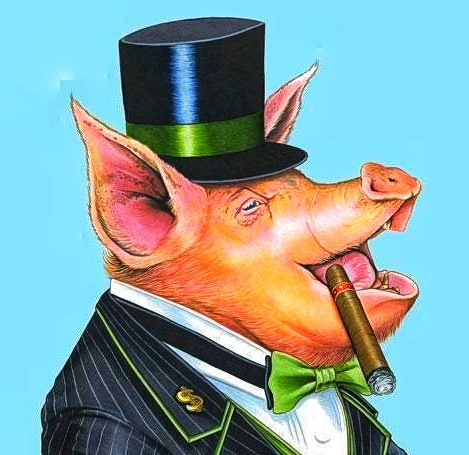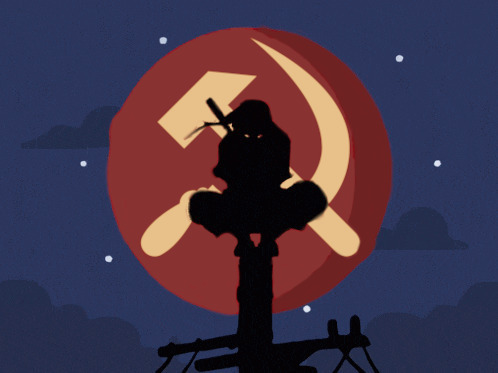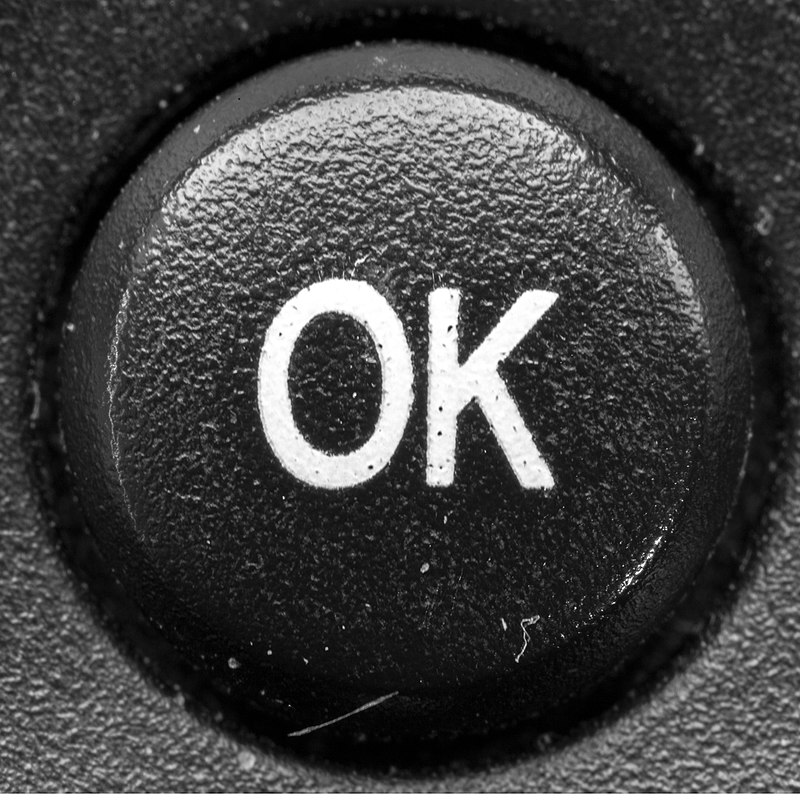The word “leadership” is pure ideology, it is a concept with zero rigor that urges us to accept that some people are inherently better than others and deserve their elevated position in society.
I’d push back on that, some people are better leaders than others and in a pinch there will always be people who are better able to guide a group through a challenging situation. Of course the people promoted as “leaders” under capitalism are more like petty tyrants than actual leaders. Most great leaders I know IRL are working class people who genuinely care about others and will help out without any expectations for a reward
“Leader” is a word invented by the bourgeois class to replace “noble” as a justification for their position at the apex of a pyramidal society. It’s such a universal concept that in Spanish, they only started using “líder” as a loanword in the past few decades.
Most great leaders I know IRL are working class people who genuinely care about others and will help out
I don’t understand what concept you’re trying to convey. Is a leader a person who exhibits a display of class? Is a leader someone who cares about someone else? Is a leader someone who helps other people? Or are you using the example to describe an opposite, that a leader is someone who enriches themself at the expense of others?
I have a good idea of what a spokesperson is. And what a parliamentarian is. And what a teacher is. And what a strategist is. I have no fucking clue what a “leader” is.
leader is just literally a person who leads, it could be dictatorial or democratically.
you are being very strange right now
This is why the left has so few leaders… and the government assassination and incarceration
Having one “leader” that you roll all the executive functions or skills of power into, and who just does all those things while a bunch of “followers” do none of those things, is imbalanced and vulnerable.
If you have 1 leader, the government or counter-revolutionaries can easily assassinate, incapacitate, blackmail, bribe, or compromise that leader, and you can kiss your progress goodbye. If you have a council of the highest roles in different domains that are distributed amongst several people, it’s much harder to compromise, the payoff is less, and a compromised figure is almost automatically replaced.
Having one “leader” that you roll all the executive functions or skills of power into, and who just does all those things while a bunch of “followers” do none of those things, is imbalanced and vulnerable.
ideology, even in the most stratified socialist society the position of ‘leader’ is very democratic
I suppose I’m using “leader” as a rough synonym for organizer, in that they are able to motivate other people toward a goal and direct collective action
But is that really one unitary thing, or is it like the concept of intelligence, where there are a lot of different measurable capacities that all get rolled into one, and we think about it as one single concept because we are accustomed to using the word for that concept?
Isn’t that just how words work? Most concepts can be broken down into component concepts
Some concepts, not all. I’d say not even most.
We start out in the dark and we make associations between things and this develops our understanding. Eventually we can put a picture together from all the linkages, or reach a true elementary foundation. But we don’t start from knowledge.
Sometimes we have words for things, like ether and phlogiston, that are based on our assumptions and work for a little while as heuristics, but further and rigorous investigation reveals that they were inaccurate inventions of our own minds.
Anyone who’s acquired a second language, or been immersed in a different nation’s culture, or studied anthropology, learns that there are some things that don’t carry over very well. It’s the concepts that are neither universal nor quantifiable nor specific that I look into as candidates for dissolving.
In the associations I’ve worked with, all committees and boards have a designated ‘leader’. The role of a leader is to know how everyone is doing, to resolve internal conflicts, to organise and direct the meetings and to take over any task of a member who is not able to fulfil theirs. I would say that a good leader has a somewhat high emotional intelligence and has a broad skillset in order to be able to take over other peoples tasks. The leader is usually the one who puts in the most energy because ideally they are on top of everything that’s going on.
I’ve seen a lot of people doing a terrible job at it though because they think that their job is to just be assertive and motivate the other members to do their tasks, which is what the media often describes as ‘good leadership’.
I’d be willing to bet those boards also had a “secretary” and a “vp/co-chair” and a “treasurer” and possibly other positions, because “the one person who runs everything in the organization” is both too much for one person to handle, and doesn’t allow people to specialize as well.
You have described a “leader” as a Social Connector, a Conflict Resolver, a Parliamentarian, and a Generalist. Why should these all be one person, instead of separate people, so they can all do a better job of their thing?
they think that their job is to just be assertive and motivate the other members to do their tasks, which is what the media often describes as ‘good leadership’.
Sounds like there are many divergent and incompatible definitions of “leader” and “leadership”.
Thinking about the Cabinet of the executive branch also informs my thinking. Joe Biden is a perfect example of how all the departments would run just fine without him. Yet he is the foremost leader in the land.
You make good points, I can see how an organisation can work with the tasks I described subdivided into equal roles. And it might be more democratic that way. To me it doesn’t discredit the meaning of the word leader though. Words often don’t have a single definition that works for everyone, and I agree that this word has lost its meaning in general. But in the associations I mentioned the word does have a clear meaning as I described. So in some contexts I do think it makes sense to use it.
I agree with this just because it makes people think more about stuff they take for granted
It seems like “leadership” combines a bunch of different skills like being a good spokesperson, or a good organizer, or a good strategist that don’t necessarily have to reside in the same person. You do need all those skills gathered somewhere like an executive committee, though.
dude some people are better at some things, while others are better at different things
some people can lead, others can put together space shuttles
you are being very strange
 “We have been implicitly accepting the idea of ‘nobility’ that has no demonstrable empirical basis in reality.”
“We have been implicitly accepting the idea of ‘nobility’ that has no demonstrable empirical basis in reality.” “People are better at different things. Some people are fit to rule, others are fit to put together cathedrals.”
“People are better at different things. Some people are fit to rule, others are fit to put together cathedrals.”Broke: From each according to need, to each according to ability.
Woke: Actually, everybody is exactly the same.
Broke: Ruthless critique of all that exists.
Woke: …except for the idea of “leadership”, which I am particulary attached to.
Removed by mod
I’m analyzing a concept that we’re all taught and indoctrinated with, and pointing out that we need to think outside the narrow boundaries it creates for us.
You have a one line “no, you’re wrong, that’s stupid”.
Very convincing of you.
deleted by creator
Removed by mod
Formal jobs in 4 different sectors since age 17, various organizations since several years before that. I get where this is coming from though; I had a brief conspiracy theorist phase that ended because I realized how hard and messy it was to orchestrate things.
Working a variety of different jobs/settings, and doing leftist organizing for over 5 years, was what led to this idea- that leadership is an arbitrary umbrella concept that is better off with its fragments standing alone.
I would also watch presidential debates and speeches and think “the best debate bro doesn’t necessarily have the best strategy, and the person with the best strategies is not necessarily the best at implementing them”.
Also in college I took a course where we spent the first week doing nothing but coming up with rigorous definitions of the terms we used. Eventually I started to do this for all kinds of terms.
A good leader doesn’t dominate or subjugate others, they’re invested with trust and responsibility
Many would disagree; they would say that a leader inherently imposes their will on others; they would say that leadership is not about having all the dials at the right level, but about what you do in the face of the limits to the trust and responsibility that are purveyed to them. “A leader is not someone who has things go according to plan, but who responds to things not going according to plan” is a fairly agreeable statement… but it makes the concept less clear, not more. There are all kinds of platitudes about leaders and leadership. “Responsibility” is also a very broad idea and I’m not all that certain what it really means.
Can you make a delineation of what leaders are or aren’t, what they do or don’t do, and use that to say whether someone is a leader or not? Can you define leadership rigorously, the way one can define chemistry or Scandinavia? In my effort to define leadership I made a long list of qualities and realized they were all independent of each other, and involved separate skills.
Are you sure leadership is A Thing, and not just a word that is peculiar to your language and culture, and which you’ve been conditioned to think about the world in terms of?
In my effort to define leadership I made a long list of qualities and realized they were all independent of each other, and involved separate skills.
Saying someone is a good leader is like saying they’re a good basketball player. Of course you can break it down into smaller constituent skills, of course some good leaders/players have different strengths among those skills, but at the end of the day it’s useful to talk about the concept as a whole, too.
And lacking a solid, commonly accepted definition doesn’t mean something isn’t real. Is happiness real? You can make all the same critiques of that as a concept.
And lacking a solid, commonly accepted definition doesn’t mean something isn’t real. Is happiness real?
There’s the word/concept I was looking for. I’m so glad you asked.
Happiness is absolutely not real. In fact, that was the first or second “umbrella concept” that I started to break down, along with intelligence. I know what joy, gladness, serenity, pleasure, optimism, adoration, pride, excitement, satisfaction, and gratitude are. They never occur or exist all together at once, but that is what the idea of “happiness” implies: that there’s one dial that’s either high or low.
After thinking about happiness, I don’t believe I know what it means anymore, and I’m actually glad I don’t, because my life makes more sense and is more affirming after breaking it up into its component parts.
I’m not about to go out and say that every word and concept is flawed and should be dissolved. Only a few of them, and they tend to be broad ideas with relatively simple words that we are taught very early on, and have lots of synonyms.
When I was a little kid, a few students in my cohort were selected for a “leadership camp”. I never knew what went on there. How did they practice leadership without any followers at the camp? Were some of them secretly invited to be followers? Do I have to listen to them when they get back?
I was sent to one of those.
I don’t know the answers to any of those questions either.
Which makes more sense?
- a distinct skillset of oratory
- a distinct skillset of abstract thinking about objectives and outcomes (strategy)
- a distinct skillset of teaching
- a distinct skillset of managing dialogue
- a distinct skillset of coordinating people in real time
- a distinct skillset of mediating and resolving disputes between group members
- Leadership, which is some mishmash of all or any or none of the above, we say it’s a skill but there are no good tests or even any quantitative metrics of it
I can say for certain that none of the leadership things I’ve been roped into have been about any of the things you listed under #1.
Maybe “abstract thinking about objectives and outcomes” but that appears to be more, like, a thing that justifies “leaders” existing, rather than something they actually do. If I start actually talking about that sort of thing with leaders they get weird about it.
Comrade, do not let the liberal desire for middle managers that boost the bottom line taint the concept.
Those whose passion and unwavering loyalty to the people earn their place, they are not inherently better due to blood or class.
Ho Chi Minh, who led a revolution not just against the Japanese Empire, but the French and American Empires, too.
Lenin, who led the Bolsheviks to victory to establish the great Soviet Union.
Sankara, whose short tenure liberated Burkina Faso.
Leaders are able to inspire and direct the fury of the proletariat to a better future with charisma, knowledge and integrity. It’s easy for greedy to be corrupted, it’s easy for the cowardly to surrender, it’s easy for the unwise to be defeated. It is difficult to sacrifice comfort to fight for a slight chance at liberation.
Against overwhelming odds, leadership is necessary to survive, let alone emerge victorious.
None of those people lived in a vacuum, their success is, like all things, circumstantial and influenced primarily by the work and effort of other people. Yes, Lenin did a lot of good, but we focus on him primarily because he was just coincidentally in the position that granted the most attention. Nothing he did could have been done without the work of hundreds of party members other than himself.
Do not confuse criticism of leadership as a concept with criticism of organizers. Someone who is more willing and more able to organize people together is a very real phenomenon, as with all skills; but “leadership” implies an elevated position, a worthiness above the average person. This is not real, because like all conceptions of worth, we made it up.
Pictured below Bill Murphy Jr.

14 words?
“My Daddy paid for my career” is just 6.
“Just start on third base and your future will roll out the red carpet.”
What am I missing?
Making fun of the “14 words” nazi shit ig
Thanks
the only person here who realized they were missing something!
Apparently I’m not well versed in fascist dog whistles. I was never really around those sorts of people
not that you know of anyway
I think we are safe because “existence” is not a short word







